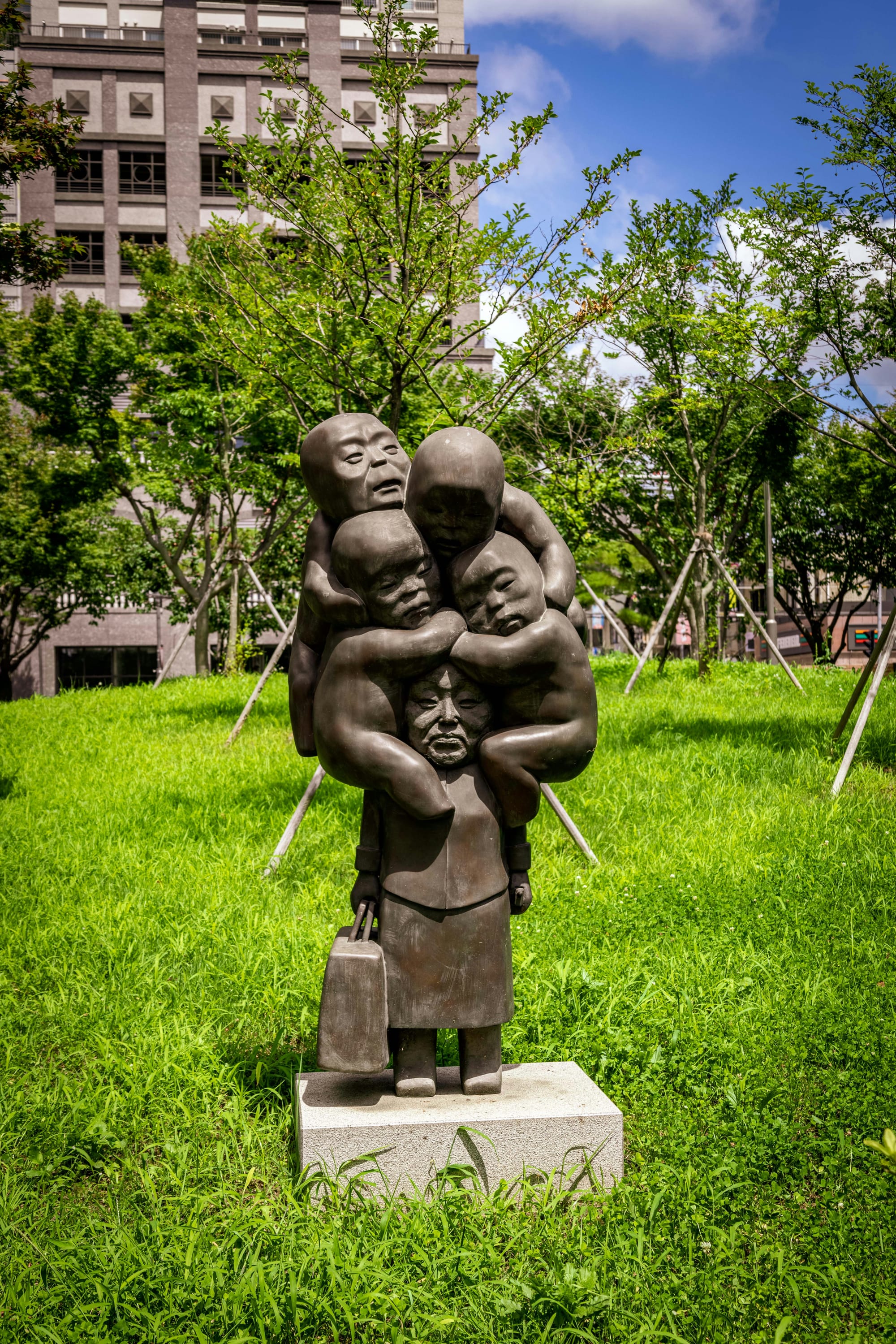Stress in Menopause

Stress appears to be a simple fact of our lives these days, the apparent constant running through the multiple currents of our lives that feel chaotic, disjointed, interrupted, and discordant. So is stress really any worse during the menopause transition? Does it just feel worse because our coping skills seem to have diminished? Are we finding ourselves falling short of being the best selves we were just a few short years ago when we could juggle everything we—and others—asked of us? Or has life itself really become more unmanageable?
While our capacity to cope with the—often untenable—burden of our to-do lists has, indeed, declined, the truth is that life during the menopause transition is, in fact, more stressful. There are at least seven reasons I can think of for this that I’d like to discuss in this post:
1. Physiological changes of menopause trigger the stress response
2. How the aging process typically happens for women
3. Some people experience an early and/or abrupt menopause
4. Attempts to juggle and balance a crazy number of “priorities”
5. The pace of life
- Intrusive memories/unresolved issues arise more readily
7. Cultural perceptions of women and menopause
8. Confrontations with mortality
If you can’t handle looking at all of them right now, I completely understand. I find it overwhelming and not a little enraging just looking at them.
Just bite off one or two at a time when you’re feeling strong. I’ll title the sections so they’re easy to find and/or avoid.
***The hormonal roller coaster of menopause internally creates sympathetic nervous system arousal on an ongoing basis.
The fundamental physiological changes of menopause trigger chemical, emotional, mental, physical, and spiritual upheaval that affects every aspect of ourselves and our lives. This transformation does not occur over days or weeks but unfolds over years.
A crucial fact:
· Because almost every cell in the body has estrogen receptors,
AND
· because these cells are hungry for and deprived of estrogen as it declines throughout peri- and post-menopause,
the hormonal fluctuations of menopause itself trigger the fight-flight-freeze response (the stress response) in the body.
For me this was a tremendous discovery. The anxiety and panic I was experiencing, the hypervigilance, the inability to get calm no matter what I did, the increased vigilance and hyperarousal I constantly felt, even while practicing yoga or reading a book, all started to make more sense. I had even started to have paradoxical reactions to substances that had helped me sleep in the past—Ambien, cannabis (both THC and CBD), Doxylamine—so that my heart would race and I would panic as I was trying to fall asleep.
The hormonal fluctuations of perimenopause—including the loss of progesterone, our built-in calming, anti-anxiety, sleep supporting hormone—trigger sympathetic nervous system arousal all by themselves. No need to look at the headlines, the fight with your sister, the work deadlines, the last-minute school projects, the disconnect from your spouse, the brutal four hours of light “sleep” you got last night—though all of these do, of course, contribute to our stress and hyperarousal.
But my point is, it’s not all because of things happening outside of you. Menopause is—chemically, physiologically—unavoidably stressful. Generally, you can’t meditate, yoga, exercise, eat, therapize, or think your way out of it, although whether or not and how you do all of these things can impact the experience and magnitude of your stress response.

This hormonally mediated, internally triggered stress response is one fundamental reason menopause is stressful. For women, this physiological havoc is what initiates the aging process, and this evolution is another powerful stressor for women.
***Aging tends to happen abruptly for women – a rite of passage by fire for many of us.
As I alluded to in a previous post, for women the aging experience tends to feel and be precipitous. A few months ago I was listening to Stacy Sims, an exercise physiologist who specializes in women’s health, interviewed on Andrew Huberman’s podcast. She said,
“…men age more in a linear fashion, whereas women, we have a definitive point in our late 40s, early 50s, where all of a sudden things go to shit.” (Minute 45 +)
When I heard her say this I burst into tears. It was upsetting, but also profoundly affirming of my experience. I couldn’t believe how quickly I seemed to have lost my energy, my mooring, how rapidly I seemed to have descended into a chaos that none of my previous go-to tools were able to organize or calm. According to Sims, this is how many women experience the peri- and post-menopausal transition and how aging manifests for many of us.
I want to point out, it is not the typical male experience of aging. Therefore, it has not been exhaustively researched, fretted and written about, discussed openly, or presented through hundreds of media outlets as a conceivably sexy and potent time of life. Within mainstream Western culture women’s aging, when considered at all, has consistently been whispered about as ugly and shameful, with women themselves depicted at this stage of life as shrewish, shriveled, shapeless, and disposable.
Although the menopause transition often stands at the threshold of aging and elderhood for women, it's important to acknowledge that this is not true of everyone.
***Early menopause, whether genetically programmed or surgically/medically induced, can change our bodies and life trajectories suddenly and unexpectedly.

Some of us experience menopause much earlier than is typical—in our teens, 20s, and 30s. This can happen for various reasons, such as POI (primary ovarian insufficiency) or PCOS (polycystic ovary syndrome). In these situations, we are rightfully not prepared for an “aging” or “eldering” process. We also experience grief about losing some of the possibilities and protections inherent in our menstruating years—conceiving children naturally and hormonal support for our hearts, brains, and bones. We may feel out of sync with peers and feel the burden of coping with others’ disappointment, for example, our parents grieving the possible loss of becoming grandparents.
Dr. Newson is a British GP | This is a helpful video on surgical/chemical menopause with a lot of information about hormones and hormone replacement as well.
Some of us undergo potentially lifesaving surgeries and/or medical treatments that throw us into early and abrupt menopause. When this happens, menopause symptoms can show up abruptly and dramatically, exacerbating the stress of dealing with serious health challenges and arduous treatment regimens.
***The demands of mid-life do tend to be more burdensome than those of our young adult or elder years.

While each life stage has its own challenges, in midlife the number of responsibilities tends to be greater as does the implications and importance of those duties.
For example, if you are caring for children or teenagers, but also are needed by your aging parent, who takes priority? If your partner is telling you that your relationship needs more of your attention, but your supervisor is asking you to take on a promotion that means more time spent on work, what choice do you make? If the house hasn’t been cleaned in a month and the family has been living on take-out food, do you take the time to clean and cook a nutritious meal, or do you exercise and take a nap?
Perhaps these “choices” that feel more like no-win situations than possibilities are familiar to you. They are well-known to most people in mid-life. One critical difference for women is that we have been socialized, and there are cultural and interpersonal expectations, that we will take care of it all.
· We will prioritize our children and our parents, sometimes those of our spouse as well.
· We will grocery shop, clean the house, take the dog for a walk AND we will exercise, cook and eat nutritious food, and sleep 8 hours a night peacefully.
· We will plan, find babysitters, and share date nights with our partners while also pursuing our career ambitions, accepting the extra work and responsibility that comes with promotions, pay raises, and recognition in our field.
The idea that every aspect of our lives can be the priority is clearly insane and defies the very concept of a “priority.” Yet this is how it feels, often how we attempt to live. It creates stress at any point in our lives. However, it becomes completely unsustainable as we wander into the twisting maze of perimenopause when our exhaustion reaches a fever pitch and internal voices get louder and angrier, essentially saying, “no ma’am, no more of this bullshit.”
Of course, it takes a while to realize what is happening. And even longer to deal with the stress of making different choices, learn how to prioritize oneself, and deal with everyone else’s reactions to you being someone different than who you have always been to and for them.
***Every year we say that life seems to be speeding up, and every year that seems to be true.

The pace of modern life exacerbates the stress of menopause, as do cultural perceptions of menopause and menopausal women. Petra Coveney, my Menopause Yoga teacher, has summed up her advice to women like this:
“Do Less. Reduce Stress. Rest.”
I struggle to understand how any of this is possible. However, I understand the wisdom of it on a visceral level so I’m trying to work with it.
I recognize that all of us and almost everything external to us seems to be moving faster with each passing year. Even the seasons, which used to be discrete segments of time that seemed to have a more profound effect on how we were behaving, have, with increasing global warming, started to blur into each other, balmy weather in December, strange freezes in June. Specific sports seasons are a thing of the past, fruits and vegetables are flown in from all over the world to be eaten at any time of the year, we can shop, communicate, do research, attend meetings at any time of the day or night with people from all over the world.
The lack of boundaries around almost every experience and relationship makes everything feel as if it is happening—or should be happening—right now and at the same time. It’s crazy-making and it’s making us crazy.

***During the menopause transition many people find that long-buried memories rise to the surface and/or unresolved issues present themselves for consideration.
The hippocampus, the seat of memory in the brain, also has (surprise!) estrogen receptors. How the physiological shifts of menopause affect the hippocampus are only theoretical as this point. However, many women find old memories rising persistently and sometimes overwhelmingly to the surface of consciousness.
These memories in themselves are not necessarily sad or traumatic, but they certainly can trigger feelings of loss, nostalgia, or discomfort. The memories may cause a certain amount of preoccupation as we start to ruminate about areas of our lives that lack closure, question patterns of behavior that we see more clearly, or find ourselves haunted by painful or traumatic events that we thought had been successfully suppressed or resolved.
The menopause transition has a reputation for being a time of psychic upheaval, when something is us rolls up its sleeves, throws open the blinds shuttering the cobwebby attics of the mind, and starts opening old boxes and asking about what it finds. Dr. Lisa Mosconi, author of The Menopause Brain, alludes to this phenomenon when she describes the physiological changes of menopause as part of a "rewiring" process. The rewiring is and is catalyzed by material cellular changes, but--as we know and can feel--it has psychological and emotional consequences.
When the past exhumes itself, zombie-like and impossible to ignore, it tends to pull our attention and energy away from our present activities and relationships. This can be terrifying or interesting depending on what is coming up, but either way it offers us an opportunity to reflect, investigate, and heal what is wounded on a new level and from a different perspective, because we are different now. If we can clear out some of the crap in the attic, we might be able to redecorate, create a room of our own up there, and use it as the headquarters for the next stage of our life.
***People who experience menopause include cisgender women, transgender people, and nonbinary people of various and overlapping races, cultures, sexual orientations, family configurations, and classes. How are we, our bodies and experiences, viewed by the dominant culture?

Cultural perceptions of menopause deserve their own blog post (or several), and I’ll discuss them again. Suffice to say that
· the silence and shame that continue to pervade all topics of intimate and bodily interest to women
joined with
· patriarchal perceptions of women as inferior, mysterious, somehow incomplete or disfigured men
· who age into fearsome hags and witches who will use their misbegotten powers for evil
can make for a stressful menopause transition.
I will add to this that anyone who is not part of the white, male, heterosexual, cisgender, economically privileged culture will experience additional stress in the form of systematic prejudice, violence, reduced access to vital healthcare and information, and attempts to legislate you and your needs out of existence.
For the vast majority of people, menopause--as far as it is understood at all--is considered an issue that only affects cisgender women. This is not true. It affects anyone who has female body parts and physiology and anyone who has larger doses of estrogen and progesterone running through their bodies. Trans men, trans women, and non-binary people go through menopause.
Because white women have historically been in closest proximity to white men, the dominant cultural group who has had the most access to resources needed to practice medicine and scientific research, white women's experience of menopause has tended to be considered typical and assumed to be true for all women. Also, not true. A person's experience of menopause can be profoundly affected by race, socioeconomic class, and other characteristics that place them at particular intersections of identity. Who we are and who we appear to be influences how we are viewed by others, how we are treated within the dominant culture, and how much access we have to resources that can have a huge difference on our experience of menopause.
Also, other cultures and family groups may have different stories about the meaning of menopause that can create a more positive or negative experience for each person.
***Coping with loss & death
The last thing I’ll bring up here is the obvious, but lurking-in-the-background, stressor: mortality.

Menopause is an integral part of the aging process. For most of us, it is the harbinger of old age, and how we ultimately cope with and integrate the challenges of menopause may be critical to who we become as elders.
However, the menopause transition also involves an immense amount of loss: The loss of our cycle, our fertility, the possibilities inherent in our youthful years, the recognition that certain avenues and choices are no longer open to us—whether we wanted them or not.
The physical and mental losses are profound: While we may ultimately maintain or make gains in our health and well-being through this transformation, in the short term we tend to lose muscle mass and strength, bone density, flexibility and ease, mental sharpness and alertness, the capacity for sleep, relaxation, and rest. Our blood tests seem to be those of a stranger who smokes, lives on fast food, and spends their days on the couch in front of reality TV shows.
Spiritually and emotionally, we are confronted with heavy losses: Our children mature and move into the world, we haven’t achieved what we set out to achieve in our careers or avocations, marriage and partnership isn’t what we thought it would be, we haven’t become the people we imagined we would be by this time.
Most painfully, we begin to encounter intimations of our own mortality on a regular—sometimes daily—basis. We don’t work like we used to and everything that has changed seems to have broken, run out of juice, or deteriorated in some way. We know that what comes after aging is old age and death. How the fuck do we deal with this on top of everything else?
Up to this point many of us could add death to the bottom of the to-do list to deal with later. Now, it seems to be irrupting into consciousness daily, with every creaking joint, minor injury, doctor’s visit, rage geyser, and especially, the middle of the night reveries that accompany the insomnia that makes us think death might be a nice rest.
In addition to our own deaths, we find ourselves in mid-life dealing with the appalling reality of others’ mortality. While many of us have lost loved ones at various points throughout our lives, death takes on new shadings as it seems to step out of the shadows, sits down at the table, and starts to pour the tea as if it’s planning to stay a while. It begins to sever our most cherished connections and becomes impossible to ignore. The loss of our parents, our friends, and even people we don’t know, who have been part of our growing up experience—our parents’ friends, celebrities whose shows we grew up watching or whose music we danced to in college—can overwhelm us. Because of our increasing age, the number of deaths that we may experience during this time can feel cataclysmic, undermining our capacity to cope with any of them.
If we are not connected to a spiritual practice or philosophy and/or to a group of people who know, support, and love us during this time of intense loss, grief, and confrontation with mortality and death, we can flounder and find ourselves overpowered by the emotions, thoughts, and physical manifestations of our experience. However, even if we have had spiritual understandings and religious practices we have relied upon for meaning and sustenance throughout our lives, we may find they don’t reverberate with or sustain us as they once did. It may feel as if many of our closest support people—siblings, friends, colleagues—are experiencing many of the same struggles, and we are all trying to sustain each other while exhaustedly keeping our head above the waves.
It is, simply, stressful.
Conclusion
I want to end this post by reminding all of us that menopause is not a disease or diagnosis. It is, in fact, an extraordinary life transition and the only reasons it has been pathologized are:
1. Like any life transition, it involves a fair amount of physical and psychic discomfort.
2. It has been viewed almost exclusively through a patriarchal lens.
It’s important to keep in mind that we are not failing, physically, mentally, emotionally, or relationally.
The stress we are feeling is both
1. inherent in the nature of this transition
2. due to the fact that during this time of intensified living very few of us have the family, community, healthcare, and cultural support we need
I don’t want to end this post on a bleak note. But I did want to address honestly the various stressors that tend to be magnified and intensified during menopause. Our stress may feel colossal, acute, chronic, and impossible in ways that it hasn’t ever before.
Not only are we likely dealing with more (external and internal) stressors, but we are also metamorphizing, changing—viewing ourselves and being viewed differently. To add fuel to the fire, the coping mechanisms we have carefully tested, curated, and placed confidently in our toolbox over the previous decades don’t seem to be quite as effective as they once were.
In future posts we will look at ways we can constructively deal with the physical, emotional, and mental stress of this time of life. For now, just take this with you:
· What you are feeling is valid.
· If it seems like too much, that’s because it is.
· You are not crazy.
· Even though a clean house, a warm meal, a successful presentation, a child’s success, or a sexy evening all seem to be your responsibility, they aren’t.
Your needs matter. Your life matters. I am learning that menopause is a great opportunity to begin to behave as if this is true, if you haven’t already.

